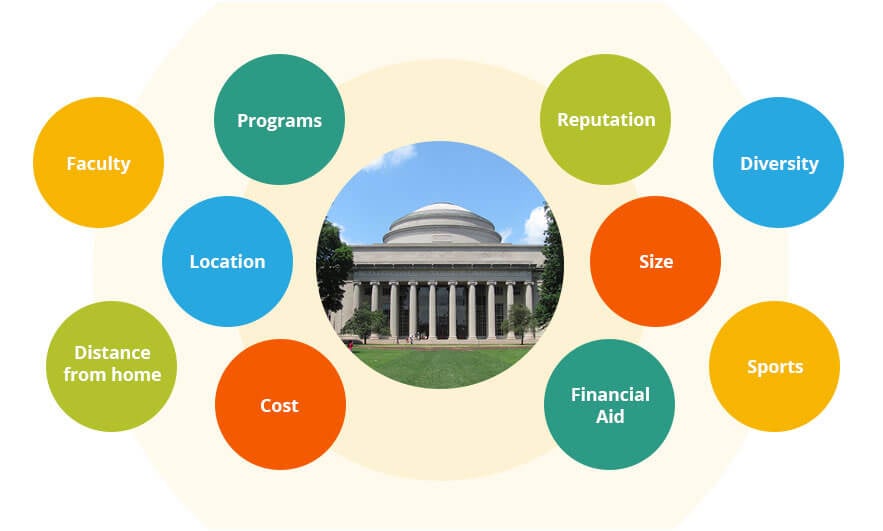It can be intimidating to try to choose one college from nearly 3,000 options. Luckily, you can easily narrow your search by considering fit and accessibility. Consider these questions as you search for the right college for you.

Is the college a good fit for you?
- Compare your academic profile to the previous incoming class to get an idea for academic fit
- Consider the type, size, and atmosphere of the college
- Think about any preferences you have for geographic location
A lot of things come together to decide whether you should choose a specific college or not.
Many students consider academic fit first and foremost. How well do you match the academic profile of students at a college? Performing significantly above or below the college’s typical student body may affect how comfortable you are there.
Do you feel you could stand out in a class of four-hundred? Or, would you be most comfortable participating in classes of ten or fifteen? Research a college’s student-faculty ratio, or–if possible–sit-in a class to decide whether you could thrive at a particular college.
Non-academic factors also impact how a college fits you. What is the setting of the college? Is the college religious or secular? What kinds of services are available? How far are you from home? What is the political climate on campus?
A good fit is essential to college success.
Will the college be affordable for you?
- Avoiding debt will pay off down the road
- Compare colleges based on net price–not sticker price
No matter your situation–lowering the price of college means increasing the return on your investment.
At first, it may seem like most colleges are out of your price range. But, it’s important to remember the price published on a college’s website is the sticker price. It doesn’t take potential financial aid into account.
Most students don’t pay the sticker price for college–and chances are neither will you. The net price–or actual cost of attendance after financial aid–should be what you use to compare colleges financially.
You won’t know the exact net price of a college until you are accepted and receive a financial aid package. But College Raptor uses the academic and financial data you provide to predict a net price. This can help you decide which college to choose.
Does the college feel right to you?
- Take a tour to get a feel for the campus
- Ask current or former students, or research online
The best way to get a feel for a campus is to take a tour. A tour will let you experience the atmosphere of a college first-hand–and you may know right away whether or not you could be comfortable there.

Photograph of University of Cincinnati campus. Photo via Flickr.
A tour can answer other questions as well–like how far you’ll really have to walk to class or the cafeteria every day, or how the college interacts with the surrounding community. You can also talk to current students about how life is on campus and what they like–and don’t–about their college.
If you can’t take an actual college tour, consider a virtual tour. You can also see what current and former students are saying about the college online.
Does the college offer–and excel in–the programs you’re interested in?
- Pick a college based on your major, not the other way around
If you know what you want to major in, rule out colleges that don’t offer your major. Don’t try to tailor your interests to fit a school just because it has a good reputation.
Unsure what you want to major in? Think about what areas you excel in and what interests you. If math and science is your thing, consider tech colleges or others that offer research opportunities for undergraduates. If you’ve always been a humanities person, look into liberal arts colleges as well.


